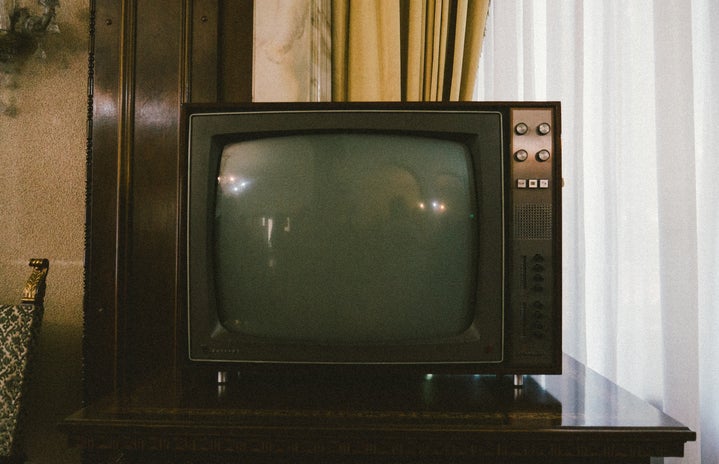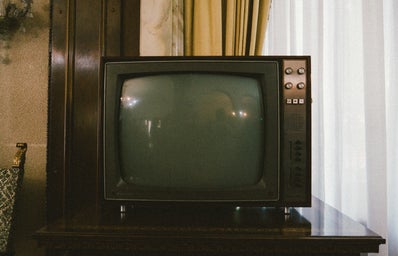Warning: This article contains major spoilers for HOTD Season 1 and George R.R. Martin’s Fire and Blood and discusses sexual violence.
House of the Dragon has shaken up pop culture in the same all-consuming manner that Game of Thrones did. From dramatic special effects to big-budget costuming, House of the Dragon carries a sense of intense fantastical awe with its chaos. Some fans are still left missing the original while others are instead impressed by House of the Dragon for its ability to integrate multiple canonical sources to create a cohesive storyline. I find myself distinctively in the second category.
House of the Dragon quite simply soars where Game of Thrones couldn’t deliver, creating a viewing experience marketed towards a larger audience and ameliorating issues of contention from its predecessor.
Perhaps one of the most marked sources of divulgence from Game of Thrones comes with the reshaping of violence. Because House of the Dragon Season 1 focuses on a more political conflict in its plot, it makes sense that the gratuitous violence would be less, but with war in the Stepstones, familial infighting, and enormous bloodthirsty dragons, there’s still plenty of gore to satisfy the more adventurous viewer without completely turning away viewers who found Game of Thrones too violent and graphic for their taste.
The sexual violence against women is deliberately and dramatically decreased from Game of Thrones, a relief to viewers. However, violence still befalls women in other ways, namely in graphic childbirth scenes across the season, with Rhaenyra, Laena, and Aemma all experiencing birth trauma that leaves the latter two dead. In addition, the theme of grooming and exploitation becomes a recurring part of Alicent Hightower’s character arc, as the show depicts brutally disturbing relationships with King Viserys and Larys Strong. It’s noteworthy that viewers find such relief from graphic sexual violence when comparing their viewership of the two shows and yet must still face enormous issues of what it means to be a woman in violent, misogynistic Westeros.
Perhaps part of this shift has to do with the increased presence of women on the executive team of House of the Dragon. With the presence of such storytelling masters as director Geeta Patel and writer Eileen Shim, we continue to see that being a woman in Westeros brings enormous difficulty without showrunners forcing us to witness overly-gratuitous depictions of sexual violence. Instead, there are ways violence is built into the depiction of womanhood in House of the Dragon that capture the cutthroat, tragic nature of Westeros. It creates a poignant picture of what womanhood in any society can entail and positions these lows alongside soaring highs like power, alliance, and friendship.
House of the Dragon addresses the question of representation far better than Game of Thrones did. In Game of Thrones, nearly all characters were white and issues of white saviorism arose in regard to the minor role of POC characters. House of the Dragon, on the other hand, remains a very white show still, but brings new racial representation with the enormously powerful Velaryon family, key players in the question of succession to the Iron Throne. The Black Velaryon characters have romantic plot lines (including a gay romance), wonderful familial support for one another, and well-developed character arcs over the season. They are just as much of the race for the Iron Throne as any of the white characters are, a marked improvement with still much room to improve further in coming seasons.
House of the Dragon far better approaches LGBT+ issues as well. Nonbinary actor Emma D’Arcy plays lead Rhaenyra Targaryen and stuns in their performance, putting forth a Rhaenyra that is torn by conflicting loyalties of those she loves. Queer actress Emily Carey plays Alicent Hightower as having repressed romantic feelings towards Rhaenyra, and both sets of actors who portray Rhaenyra and Alicent touch on how the pair’s relationship could have gone very differently had they the chance to express their feelings.
And perhaps what makes House of the Dragon so special when compared to Game of Thrones is its dragons. With more opportunities to see how dragons were integral to life in Westeros before they were all killed during the Targaryen civil war, it’s clear we haven’t even scratched the surface of all the dragon content to come across the next few seasons of political intrigue. I, for one, cannot wait.


